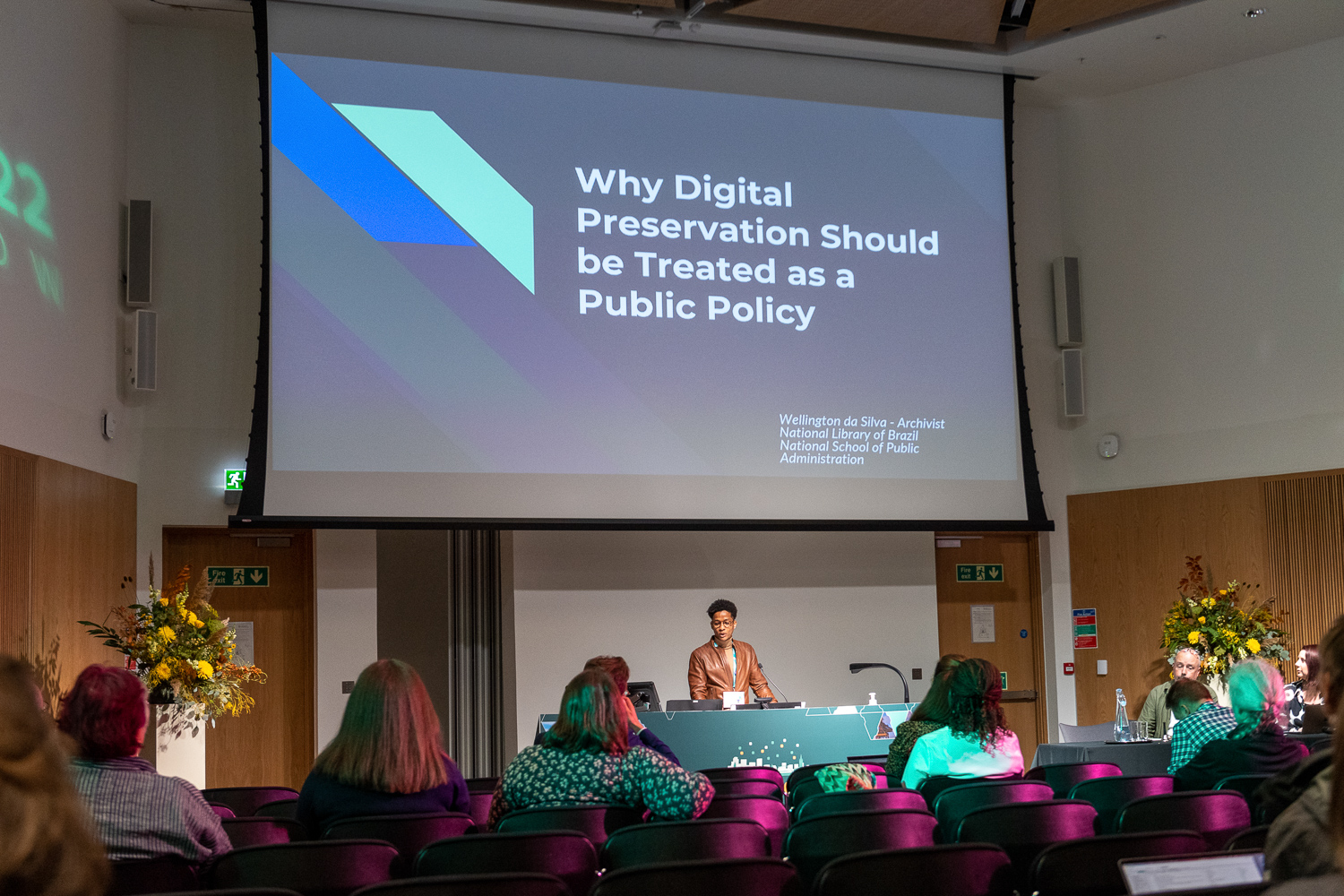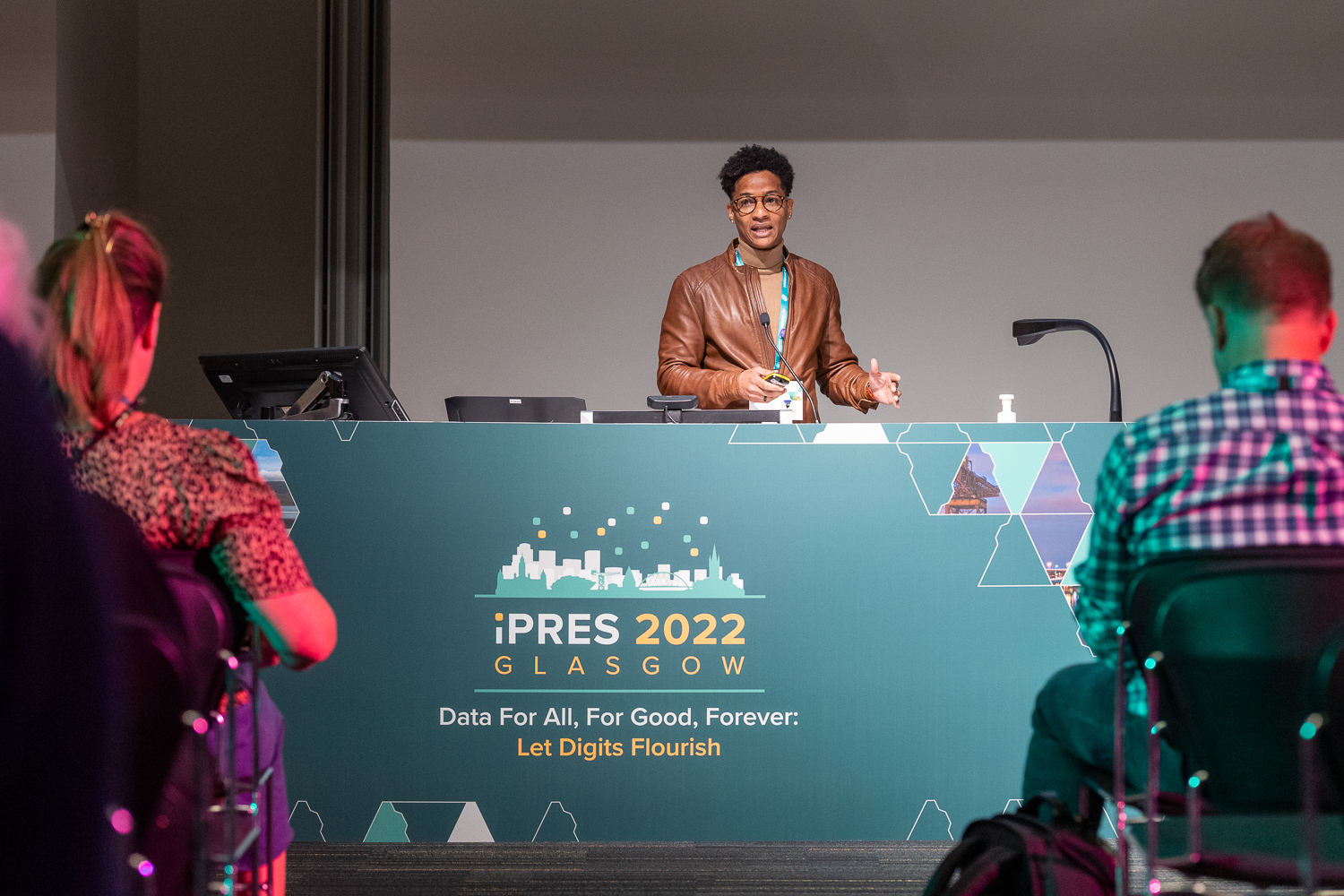I discovered iPres in 2019 when I was looking for articles for my final master's work. I found many good papers that helped me a lot. When I started searching for more about iPres and decided to participate in the next one, which would be in 2020, it didn't happen because of the pandemic. However, I didn't give up; I kept following on social media to keep updated. Participating in iPres meant acquiring more knowledge about digital preservation, to put it into practice in my job, and the result was better than expected.
I am currently an archivist at the National Library of Brazil, working in records management and I am a member of the permanent commission for digital preservation. Since 2018, the production of digital documents has been growing in my institution, and has required acquiring more knowledge to preserve them. In addition, we have the largest digital library in Latin America, with 2,138,378 million documents. Attending this conference in 2022 helped me outline strategies, exchange experiences and ideas with professionals from four continents, to preserve all these digital documents.
In addition to participating as an attendee, I had the opportunity to be awarded a DPC bursary to present the final work of my Master of Public Policy: Why Digital Preservation Should be Treated as a Public Policy, in the Lighting Talks section. The desire to participate in iPres multiplied and I was able to contribute, to be on both sides, grateful of the recognition of the organizers for my work.

Lighting Talks is the ideal way for the first international presentation; it is an incredible experience to be at the biggest digital preservation event, presenting a work in another language. It is an experience which makes me want to improve more in the area of digital preservation, in order to contribute more for diffusion and adhesion.
The papers presented made me think and rethink about what digital preservation is. What needs to be done to preserve the digital materials that are being produced? How to decide what should be preserved? These were some questions that iPres made me reflect on. The keynote Tamar Evangelestia-Dougherty (Digital Ties That Bind: Effectively Engaging With Communities For Equitable Digital Preservation Ecosystems) was one of the keynotes that impressed me the most, it brought a perspective on digital preservation that I had never thought of that made me reflect that digital preservation goes beyond guaranteeing access to digital documents in the future, it guarantees the visibility of a people, their culture and customs.
The Tutorial: Continuous Improvement Tools for Developing Capacity and Skills on RAM and CAT was of paramount importance, as RAM allows assessing the institution and knowing their maturity stage. From this diagnosis, it is possible to outline a strategy for digital preservation. It is very important for the digital preservation community to have an institution like the DPC.
The Workshop: Changing Curriculums for a Changing World? Living in Interesting Times: Digital Preservation Education, Pedagogy and Skills, gave me the opportunity to learn about the training of future information professionals in Scotland, what they are studying now, what are the similarities and differences with Brazil.
When the event ended, it was like a movie playing in my head about everything I had seen, learned, absorbed, thinking about how to put it into practice, what I should do, what skills I already have, which ones I need to improve and which ones I lack? What should my institution do to preserve what has already been produced, what is being done and what will be, what are the gaps, who are the sponsors? All these issues were mentioned at some point in a lecture about the vision of that institution, which is very important to compare, to know where we are and where we want or can be.

I am very anxious to pass on everything I heard and learned to the preservation committee that I am part of, to convince them to be at the next events, perhaps presenting a paper about the National Library of Brazil, showing what our stage of maturity was before and after of iPres 2022. Which collections were invisible and are no longer, how to convince our sponsors, are ideas which have started to boil in my mind after iPres 2022, ideas that makes me want to do something for my institution, and share with many others to allow that they do too and learn from them too, because digital preservation is not done alone.
My conclusion about iPres is to do it together, to share what we know, because we are all with the same goal and moving in the same direction. I hope to be present at all iPres and I will do my best to get more Brazilians to be too, because iPres encourages me to go further, encourages me to want to do and share!













































































































































Comments
I am proud of you and your work.